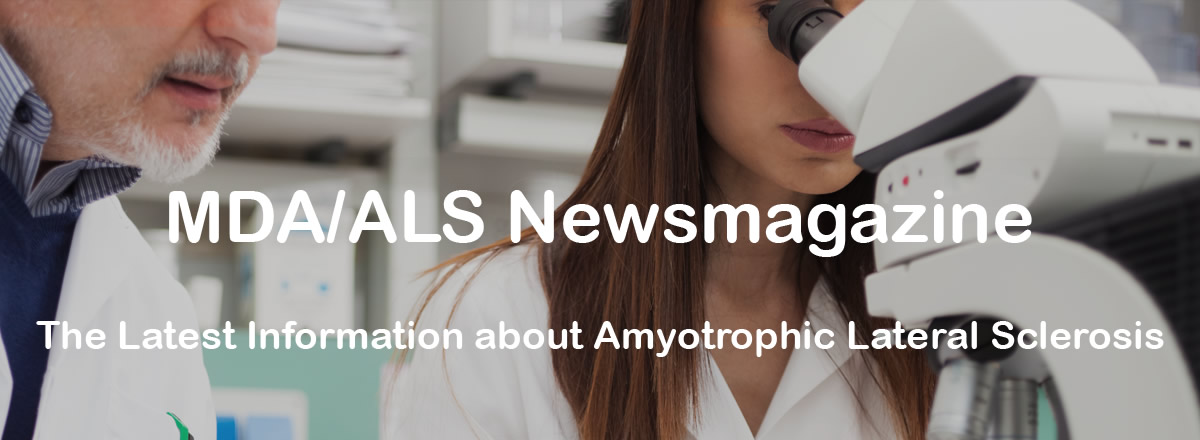
Respite Care Benefits both Patient and Caregiver
Linda Parr had a hard time convincing her husband and caregiver Larry to take a little break and let someone provide respite care for her. Larry worried Linda wouldn’t get the quality of care he could provide. If she hadn’t pushed for it, he probably wouldn’t have done it.
But Linda knew that using respite care was important to both of them. “When Larry was gone he was able to have a meal without having to help me. He had a good night’s sleep without my waking him up. It helped to give him more rest. Caregivers really need to get rest and relaxation.”
Respite had benefits for Linda as well, even though the care wasn’t equal to Larry’s loving care. “I hate that Larry has to take care of me — it’s hard to accept help like that,” said the former governmental benefits manager, 57, of Englewood, Colo. “It made me feel good to say, ‘It’s covered. You don’t have to worry. Go.’
“The main message for me is it’s very healthy for both caregiver and patient to have respite care, even if it’s for a short amount of time. It’s healthy for your relationship and for overall mental health.”
Here are several ways — formal and informal — to get the short break called “respite.”
In-home respite care
Call on friends and family: When his wife Anita received an ALS diagnosis, Robey Taylor wrote a letter explaining the situation and inviting friends and family to visit or take er out. “I was…well, some would say ‘aggressive’ about asking for help. I don’t think most people are aggressive enough,” said Taylor, of Wildwood, Mo. His wife Anita died this August. “We pretty much scheduled someone to come every day.
People are willing to help but they just don’t know what to do.”
Taylor would specifically ask people to come so he could take a break, like going to a ballgame with his son or out for a drink with friends. “They would say ‘sure, I can do that’ The key is, you have to ask.”
This informal respite also gave Anita someone new to be with and kept her active and socially involved, Taylor said.
Use friends, family and paid caregivers: For overnight respite care, some prefer a combination of caregivers. For their first respite experience, the Parrs asked family to stay with Linda and paid a certified nurse’s aide to help with “the physical part.” (The second time, Linda spent a couple of nights at a “clean and pleasant” elder care home staffed by the same aide.)
In some communities, nonprofit, volunteer or religious organizations offer grants to pay for respite caregivers to come to your home. Check with your local MDA office, agency on aging and independent living center for more information.
Check Medicaid: If you receive Medicaid assistance, many states will pay for respite caregivers. Medicaid personal care benefits also can be used for a brief respite.
Out-of-home respite
Palliative Care (PC): Although not yet widely available, this is an emerging and fast-growing area of health care. PC programs integrate medical, spiritual, emotional and social services for people with terminal illnesses.
To use it, you must find a hospital or hospice with a PC program, and you must have Medicare coverage, as most private insurance doesn’t cover it. (Medicare coverage is automatic if you’re receiving Social Security Disability Income.) PC services are billed like other Medicare services.
Short-term PC respite programs usually are offered at hospitals, but more and more hospices are adding PC to their menu of services, says John Radulovic, spokesperson for the National Hospice and Palliative Care Organization. To use PC respite, it’s not necessary to be enrolled in hospice, to be close to death, or to renounce lifesaving treatments. However, your doctor must refer you.
Hospice: Despite its association with imminent death, hospice isn’t just for dying.
Linda Parr was admitted to the hospice program after bringing up the subject to her doctor, who offered to make the contacts.
“Hospice is really a godsend. They provide so many services, more than what people may realize. It’s not just the last two weeks of your life,” she said. “I know some resist it because of what it means, but it’s been a very positive thing.”
In addition to regular in-home patient care and other services, hospice benefits include short-term respite stays at a hospice center or nursing home. Check with your local MDA office for recommendations of appropriate local hospices or nursing homes.
Peace of mind
When Linda finally convinced Larry to take a respite break, he visited an artist friend and helped him with his art show.
“It was really a nice getaway,” said Larry. “It gives you a different perspective on life. It’s good for Linda because she thinks she’s taking up too much of my life. I think respite care is just a wonderful, wonderful peace of mind for both people.”
Resources
U.S. Administration on Aging (AoA)
www.eldercare.gov
(800) 677-1116
AoA sponsors Eldercare Locator, which provides information on state and local services, including those for people with disabilities. AoA also sponsors Aging and Disability Resource Centers, which provide information on state and community long-term-care services in 43 states.
Faith in Action
www.fianationalnetwork.org
(877) 575-4932
A listing of more than 1,000 interfaith volunteer caregiving programs around the country.
National Respite Locator Service
www.archrespite.org
(800) 473-1727
This free searchable Web site helps locate local agencies providing respite.
U.S. Department of Veterans Affairs Office of Geriatrics and Extended Care
http://www.va.gov/geriatricsshg/
(877) 222-8387
Veterans eligible for outpatient medical services can receive in-home respite care.